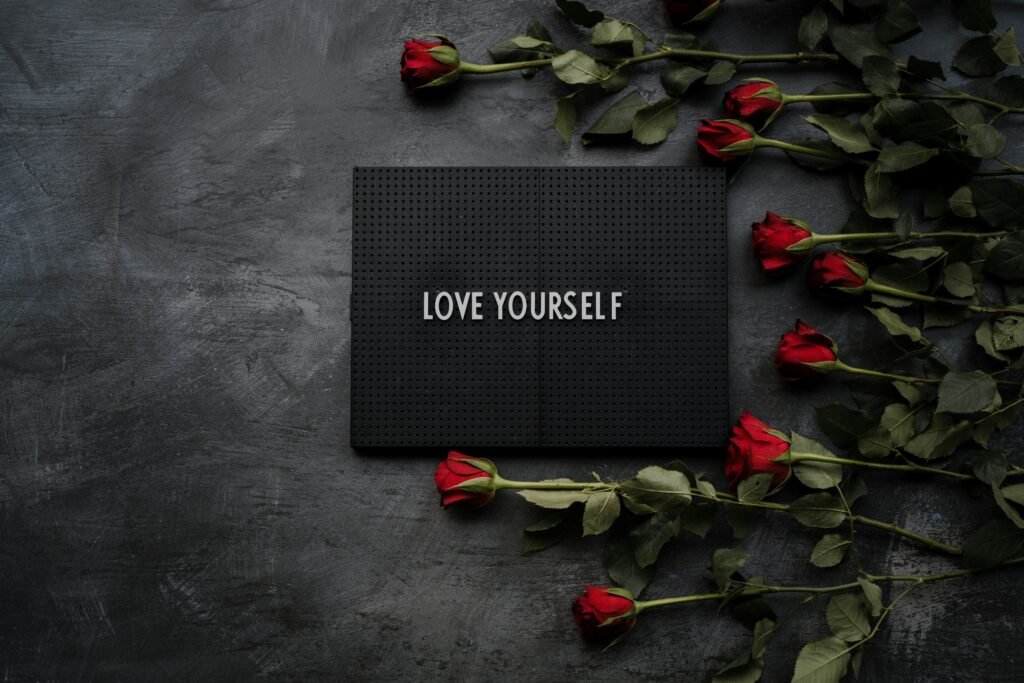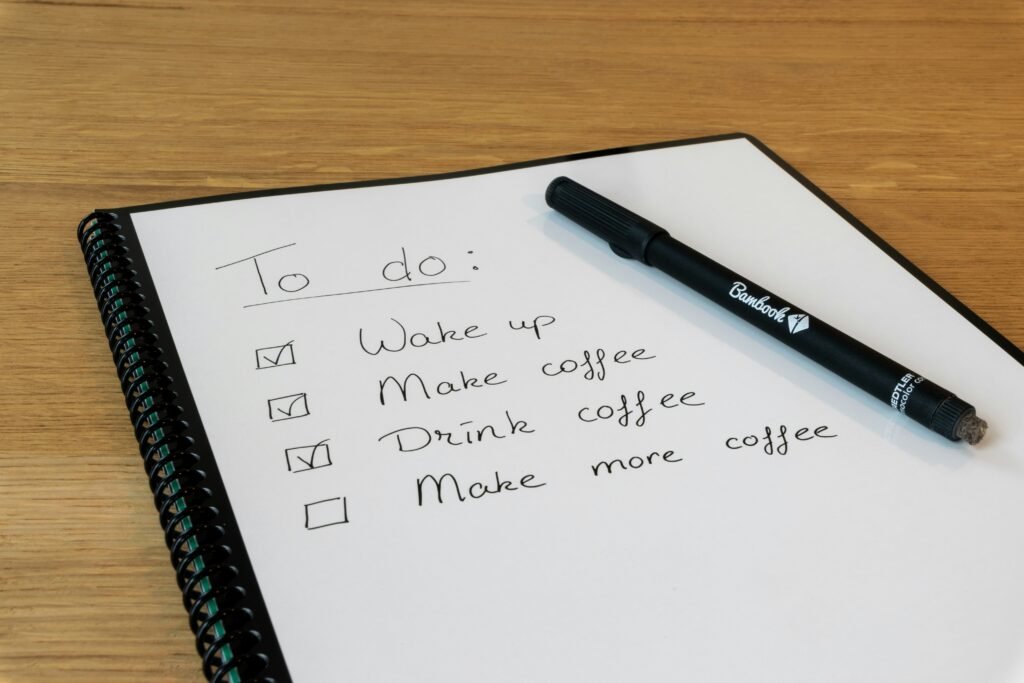The Power of Saying No: 5 Essential Tips to Improve Your Mental Health
October 28, 2024 | by Ali

Table of Contents
The Power of Saying No for Your Mental Health
Let’s be honest: How often do you find yourself saying “yes” when you really want to say “no”? Whether it’s agreeing to go to a social event you’d rather skip, taking on extra work when you’re already drowning, or staying up late to help someone when you can barely keep your eyes open, it’s easy to fall into the trap of overcommitting.
But here’s the thing: Saying “no” is a superpower that so many of us ignore. It’s not about being rude, selfish, or unhelpful. In fact, saying “no” is one of the most empowering, boundary-setting, and mentally healthy things you can do for yourself.
This isn’t just me preaching self-care. I’m talking about the kind of mental wellness that allows you to show up as your best self at work, with friends, with family, and (most importantly) to yourself. In this post, I’m going to dive into why “no” is your new best friend and how saying it can actually improve your mental health. Plus, I’ll throw in some tools to help you get started, including a few things you can grab on Amazon to make your journey a bit easier.
So, grab your favorite tea (or coffee, or whatever’s your vibe), and let’s chat about the power of saying “no.” It’s not just for toddlers, you know?

Why Saying “No” is Harder Than It Sounds
Let’s face it: most of us have a deep-seated fear of saying “no.” Whether it’s because we don’t want to disappoint others, we’re afraid of missing out, or we simply feel guilty about putting ourselves first, saying “no” can feel like trying to climb Everest in flip-flops. The truth is, we live in a culture that glorifies being busy, helping others, and being available 24/7. This pressure to “do it all” leaves little room for saying no. Yet, ironically, saying “no” is exactly what we need to thrive.
So why is it so hard? Well, it could be because saying “yes” feels like a shortcut to acceptance. You’re agreeing to things, and that can feel like you’re building rapport and strengthening relationships. But the problem is that you can easily slip into burnout territory. You might start feeling overwhelmed, anxious, and frustrated. And worst of all, you’ll probably start resenting the very people you’re trying to help because you’re stretched too thin. Sound familiar?
Here’s the deal: when you say “no” with kindness and confidence, you’re actually giving yourself permission to focus on what really matters. It’s about choosing quality over quantity in all aspects of your life.
The Mental Health Benefits of Saying “No”
You might be thinking, “Okay, that sounds great in theory, but what’s in it for my mental health?” Let me break it down for you.
1. Reduces Stress
The less you take on, the less you have to manage. Saying “no” helps eliminate unnecessary stress from your life, which is a huge win for your mental health. When you’re constantly overextended, your brain can go into overload mode, and that’s when stress hits hard. Saying “no” frees up your time and energy for things that truly align with your goals and values.
2. Promotes Emotional Well-being
Being able to say “no” helps you maintain emotional balance. Imagine constantly saying “yes” to people and things that don’t serve you. How does that make you feel? Probably drained, right? But when you set clear boundaries by saying “no,” you’re protecting your emotional space. This means you’re more likely to feel grounded, focused, and emotionally fulfilled.
3. Improves Self-Esteem
When you say “no,” you’re making a decision that puts your needs first. It’s a simple but powerful way to show yourself some self-respect. The more you practice saying “no” in healthy ways, the more confident you become in your ability to protect your mental well-being. You start to recognize that you’re worthy of space, time, and self-care.
4. Helps You Focus on What Really Matters
By saying “no” to distractions and unnecessary commitments, you open up time for the things that really make you happy, whether that’s pursuing hobbies, spending time with loved ones, or just having a quiet moment to yourself. The power of saying “no” lies in creating more room for the things that nourish you mentally, physically, and emotionally.
5. Prevents Burnout
Burnout is a real issue, and it can creep up on you when you least expect it. One of the biggest causes of burnout is overcommitting. Saying “no” gives you the power to stop before you reach your breaking point. By learning to say “no” to what doesn’t align with your priorities, you’re proactively protecting your mental and emotional energy.
How to Say “No” Like a Pro
Now that you’re sold on the benefits, you might be wondering: “How on earth do I say no without feeling guilty, awkward, or like I’m letting people down?” Don’t worry, I’ve got your back. Here are some tips to help you say “no” gracefully and confidently.
1. Be Clear and Direct
You don’t need to give a long, drawn-out explanation. Just keep it simple and to the point. A “no” is a complete sentence. For example:
– “Thanks for thinking of me, but I’m going to have to pass on this one.”
– “I’m unable to commit to that right now, but I appreciate the offer.”
– “That doesn’t align with my priorities right now, so I’ll have to say no.”
Straightforward and polite is the way to go. You don’t need to make excuses or apologize for needing space.
2. Don’t Over-Explain
You don’t owe anyone a detailed explanation for why you’re saying “no.” In fact, the more you explain yourself, the more it can open the door for negotiation. Instead, simply say “no” and leave it at that.
3. Offer an Alternative (When Appropriate)
If you feel compelled to offer something in return, consider suggesting a future opportunity when you can say yes. For example:
– “I’m not able to help out this time, but maybe we can catch up next month.”
– “I can’t commit to this project, but I know someone else who might be a great fit.”
This way, you’re still offering support without overextending yourself.
4. Practice Saying “No”
Like any new habit, saying “no” takes practice. You don’t have to jump into it with a big “no” to everything all at once. Start small, say “no” to a minor request, and build your confidence from there.
5. Remember That Saying “No” Isn’t Personal
It can be tough to say no to a friend or colleague, especially if you’re worried about hurting their feelings. Remember: saying “no” is not a reflection of your relationship. It’s simply a healthy boundary that you’re setting to protect your time and energy. If they care about you, they’ll understand. For additional tips, check out Harvard Business Reviews guide to setting boundaries.
Tools to Help You Manage Your Time and Set Boundaries
You know the saying, “It’s not just about saying no, it’s about saying no to the right things”? Well, a little organization goes a long way in making that easier. Here are some tools to help you manage your time, set boundaries, and maintain mental wellness.
1. Planner: A Tool for Prioritizing Your Time
Keeping track of your to-dos and commitments is a great way to make sure you’re not overcommitting. A planner can help you stay organized and keep your calendar in check. It also makes it easier to evaluate what you have time for and where you can say “no” to avoid spreading yourself too thin.
Check out this Best Self Planner for a tool that helps you organize your day and prioritize your goals.
2. Mindfulness Tools: Staying Calm and Focused
Learning how to manage stress and set boundaries requires mental clarity, and mindfulness tools can help you stay calm when you feel the pressure to say yes. Try a meditation cushion or a calming sound machine to keep your environment serene when you’re reflecting on your boundaries. Wondering how mindfulness can help? Check my blog post, Why Mindfulness Matters: A Beginner’s Guide Copy.
3. Books on Setting Boundaries
Books are one of the best ways to build the confidence you need to set boundaries. Reading about the art of saying “no” and setting personal limits can help you develop the skills to manage your time and mental health better.

Overcoming the Guilt of Saying “No”
One of the biggest hurdles in mastering the art of saying “no” is dealing with the guilt that often comes with it. Many of us feel that saying “no” means we’re letting someone down, being selfish, or that we’ll miss out on an opportunity. It’s like when you’re offered a piece of cake and you politely decline, but then you feel guilty for not having a bite, even though, you know you’re not hungry, and the cake would just sit there making you feel bloated later.
This guilt is real, and it can sneak up on you when you least expect it. Let me tell you something, guilt is a learned emotion. We’ve been conditioned to feel bad for putting our own needs first, but setting boundaries and prioritizing your mental wellness is an act of self-love, not selfishness.
If you find yourself feeling guilty after saying “no,” ask yourself these two questions:
1. “Am I really doing something wrong here?”
Most of the time, the answer will be no. You’re not a bad person for protecting your peace. You’re just being honest about your limits, which is something we should all learn to do more often.
2. “What would happen if I said ‘yes’ instead of ‘no’?”
If you’re truly honest with yourself, saying “yes” might lead to stress, anxiety, and resentment. Let’s face it: that doesn’t benefit anyone.
If you can reframe your thinking, you’ll realize that saying “no” is about taking care of yourself so you can be present and supportive when it truly matters. That’s a good thing for everyone involved.

Why “No” Is a Form of Self-Respect
Let’s take this a step further…saying “no” is an act of self-respect. You respect your time, your energy, and your well-being enough to say, “I cannot do this right now, and that’s okay.” In fact, self-respect is one of the most underrated aspects of mental health. Without it, we’re constantly at risk of people-pleasing, overcommitting, and ultimately, burning out.
And let’s not forget that respecting yourself teaches others how to respect you too. If you say “yes” to everything, you’re inadvertently telling others that your time is up for grabs. But when you set firm boundaries, you show the world that your needs and time matter. And guess what? They’ll start to take notice.
The more you practice saying “no,” the better you’ll become at prioritizing what aligns with your goals and values. You’ll also start to see how much more fulfilling your life can be when you’re not stretched too thin.
The Impact of Saying “No” on Relationships
Some of you may be worried that saying “no” will damage your relationships, whether it’s with family, friends, or coworkers. But here’s the truth: saying “no” actually strengthens relationships in the long run. Here’s why:
1. It creates respect: By setting boundaries, you’re teaching others how to treat you. When you say “no” with confidence and kindness, people learn to respect your space and time. Over time, they will come to understand that your boundaries aren’t a personal attack, but rather a way you protect your mental wellness.
2. It fosters authenticity: When you’re constantly saying “yes” to please others, you start to lose sight of your authentic self. Saying “no” brings you back to who you are and what you value. That’s the person people want to be around…the real, honest, and authentic version of you.
3. It strengthens your energy to give: Believe it or not, saying “no” can make you a better friend, partner, and coworker. When you’re not running on empty, you have more energy to invest in the relationships that matter most. You’ll be more present and more willing to show up when you say “no” to things that drain you.
So don’t be afraid that saying “no” will harm your relationships. If anything, it will help you build stronger, more authentic connections based on mutual respect.
Saying “No” at Work: A Special Challenge
One area where many people struggle to say “no” is at work. Whether it’s taking on extra projects, staying late, or agreeing to unrealistic deadlines, work often feels like a place where saying “no” is not an option. But here’s the thing: Saying no at work is just as important as saying no in your personal life.
If you constantly say “yes” at work, you risk burning out, missing deadlines, and producing work that doesn’t meet your standards. Setting boundaries at work doesn’t mean you’re not a team player. It simply means you’re prioritizing your workload so you can deliver your best work when it matters most.
For instance, if your boss asks you to take on an additional task and you know it will interfere with your other responsibilities, try saying something like:
– “I’d love to help with this, but I’m already working on [X, Y, Z], and I want to make sure I give those tasks the attention they deserve. Can we revisit this next week?”
– “I’m unable to take on this project at the moment. Would it be okay if I helped out in another way, such as brainstorming ideas or providing support once my current tasks are done?”
It’s all about offering alternatives without overloading yourself. Your employer will respect you more when you manage expectations and demonstrate that you can handle what’s within your capacity.

Get the Right Tools to Help You Set Boundaries
You’ve heard me talk a lot about the mental wellness benefits of saying “no,” but there are some practical tools you can use to make boundary-setting easier. Here are a few more suggestions that’ll help you stay organized, stay calm, and stick to your boundaries.
1. To-Do List Apps:
If you’re juggling multiple tasks, keeping track of your responsibilities is key to ensuring you’re not overcommitting. Apps like Todoist or Google Keep (which are free and easy to use) can help you prioritize tasks and get clear about what needs your attention and what can wait.
2. Essential Oils for Stress Relief:
Saying “no” and maintaining boundaries is an emotional practice, and managing stress is a huge part of the process. Aromatherapy is a wonderful way to calm your mind and reduce anxiety. Try using a diffuser with calming oils like lavender or chamomile to create a peaceful environment while you work on setting boundaries.
3. Books on Personal Boundaries and Self-Care:
If you’re still struggling to embrace the power of saying “no,” reading about it can be a huge help. Books can provide you with a deeper understanding of boundary-setting and help you gain the confidence you need.
Check out “The Gifts of Imperfection” by Brené Brown for a great read on letting go of perfectionism and embracing self-compassion.
Final Thoughts: Saying “No” is a Superpower
Look, saying “no” isn’t easy, especially in a world where we’re constantly encouraged to say “yes” and do more. But saying “no” is one of the most powerful ways you can protect your mental health, prevent burnout, and show up for yourself. It’s not about being rude or selfish. It’s about setting boundaries that allow you to live a healthier, more fulfilling life.
So, next time you feel the pressure to say “yes,” ask yourself: Is this truly something I want or need to do? If the answer is “no,” don’t be afraid to say it. Your mental wellness will thank you.
RELATED POSTS
View all







Leave a Reply